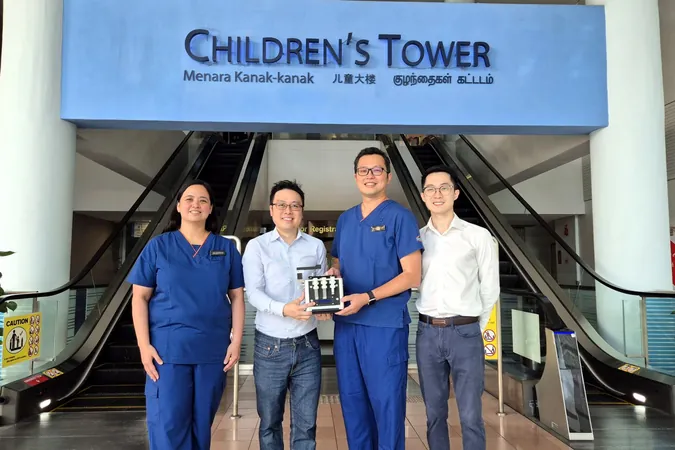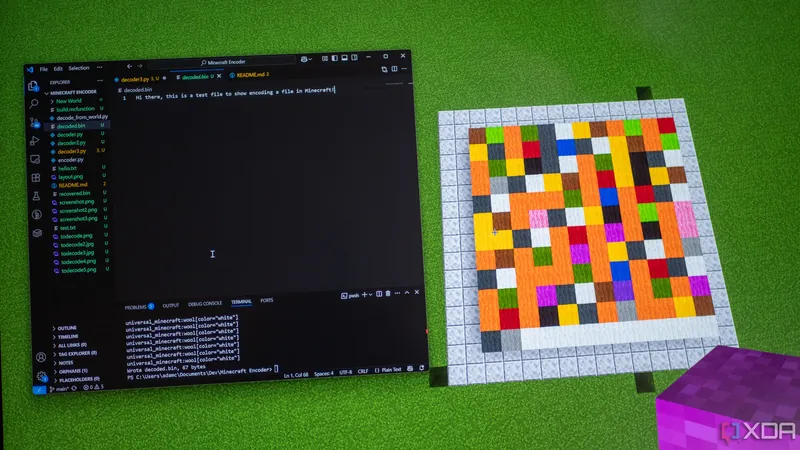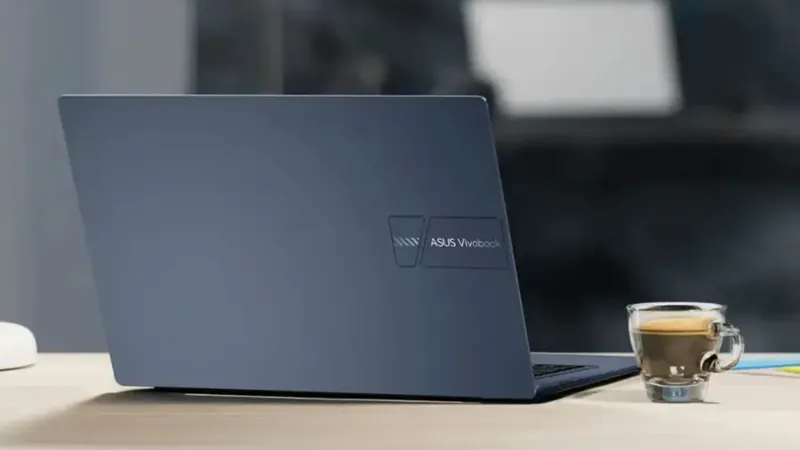
Revolutionary Device Transforms Newborn Immune Testing with Just a Drop of Blood
2025-06-13
Author: Nur
A Breakthrough in Newborn Healthcare
In a groundbreaking development, researchers from the Singapore-MIT Alliance for Research and Technology (SMART) and KK Women's and Children's Hospital have unveiled the BiophysicaL Immune Profiling for Infants (BLIPI)—a pioneering device designed to analyze newborn immune functions!
Rapid Immune Insights with Minimal Blood
This remarkable device requires just a single drop of blood, offering real-time insights into how a newborn's immune system responds. Early detection of severe inflammatory conditions is now within reach, allowing for swift medical interventions that could save vulnerable lives, particularly among premature infants.
The Urgency of Newborn Care
Premature babies face critical health challenges like sepsis and necrotizing enterocolitis (NEC), conditions that can be fatal without prompt diagnosis. Sepsis—a bloodstream infection—claims over 1 million infant lives globally each year. NEC is notoriously difficult to diagnose despite its potential for rapid deterioration. Traditional tests require substantial blood samples and lengthy analysis, posing significant risks to tiny patients.
Simplifying Diagnosis and Treatment
Unlike conventional methods that need around 1 milliliter of blood, BLIPI only demands 0.05 milliliters, dramatically reducing the risk of complications like anemia. Results can be obtained in just 15 minutes, enabling immediate action when every second counts.
Revolutionary Technology and Clinical Testing
BLIPI utilizes advanced microfluidic technology to assess how immune cells respond to infections based on their size and flexibility. This real-time profiling goes beyond mere detection of pathogens; it captures the baby’s actual immune response. In a recent study published in *Pediatric Research*, significant differences in immune cell characteristics were identified between full-term and preterm infants, with BLIPI successfully detecting immune changes during a serious blood infection in one premature baby.
Portability for Critical Care Settings
Designed for use in neonatal intensive care units and wards, BLIPI’s mobile format eliminates the need for transporting samples to labs—making it an ideal solution even in resource-limited healthcare environments. With just one drop of blood, clinicians can make quick, informed decisions about treatments for life-threatening conditions.
Improving Outcomes for Vulnerable Infants
Kerwin Kwek, a research scientist at SMART, emphasizes the aim of BLIPI to cater specifically to the constraints of neonatal care—rapid response, minimal blood volume, and maximum sensitivity. The implications for early treatment and monitoring in fragile newborns are profound.
Looking Ahead: Validation and Global Adoption
Future research aims to conduct larger clinical trials to confirm BLIPI’s effectiveness across diverse neonatal populations. The device might soon revolutionize pediatric medicine, not just in hospitals but in pharmaceutical research and therapy assessments, paving the way for groundbreaking advancements.
Collaborative Innovation for Global Impact
Supported by Singapore's National Research Foundation, this initiative illustrates a collaborative effort to harness technology for transformative benefits in neonatal health. With partners committed to enhancing the well-being of premature infants, BLIPI stands poised to change the landscape of early infant care.





 Brasil (PT)
Brasil (PT)
 Canada (EN)
Canada (EN)
 Chile (ES)
Chile (ES)
 Česko (CS)
Česko (CS)
 대한민국 (KO)
대한민국 (KO)
 España (ES)
España (ES)
 France (FR)
France (FR)
 Hong Kong (EN)
Hong Kong (EN)
 Italia (IT)
Italia (IT)
 日本 (JA)
日本 (JA)
 Magyarország (HU)
Magyarország (HU)
 Norge (NO)
Norge (NO)
 Polska (PL)
Polska (PL)
 Schweiz (DE)
Schweiz (DE)
 Singapore (EN)
Singapore (EN)
 Sverige (SV)
Sverige (SV)
 Suomi (FI)
Suomi (FI)
 Türkiye (TR)
Türkiye (TR)
 الإمارات العربية المتحدة (AR)
الإمارات العربية المتحدة (AR)